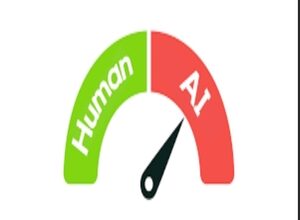Does 504 Plan Affect College Admissions

Does a 504 plan affect college admissions? I speak honestly. If you came to this blog post, there’s a good chance you, your child or someone who is close to your heart to have a 504-looking for the Long’s Long Road. And we go true: the admission process to the college is already a mountain of stress, previous and white nights. Add a 504 plan, and of course, the questions start boiling:
Will colleges see the 504 Plan?
Will it hurt the chances of getting in?
Should I hide it? Should I share it?
Will I still get the accommodations I need in college?
I get it. These are valid concerns. So, let’s pull back the curtain, cut through the legal jargon, and have an honest, human-to-human conversation about what a 504 Plan means for college admissions.
Before all we go on the same wavelength: What is a 504 plan in any way? A 504 plan comes from the 504 rehabilitation law enforcement “a law of civil rights that prohibits the discrimination against people with a disability. In schools is a document that describes the housing for students with physical or mental disabilities that significantly limit one or more great life activities. In simpler terms: a floor of 504 looks at the floor that they learn to different or do some challenges in a school, using a laptop for opinion. Unlike an IEP (individual education program), which is more intense and often involves special education, a 504 plan is mainly for access and support. But again, it’s a powerful tool.
Do Colleges See Your 504 Plan?
Let’s bust this myth right out of the gate:
No. Colleges do not automatically see or have access to your 504 Plan.
Here’s why:
1. Colleges do not send 504 plans to high school. When applying to the university, your high school sends your registration statement, maybe a school profile and letters of recommendation. Your 504 Plan isn’t part of that packet unless you explicitly choose to disclose it in your application.
2. Your Medical or Disability Information is Private.
Federal laws, like FERPA (Family Educational Rights and Privacy Act), protect students’ privacy. Unless you waive those rights or disclose your disability status, colleges won’t—and shouldn’t—know about your 504 Plan.
So the answer is: If you don’t bring it up in your application, it’s invisible. Full stop.
Okay, But Should You Mention It in Your Application?
Ah, now here’s where it gets interesting—and very personal.
There’s no one-size-fits-all answer. It depends on your story, your comfort level, and how your 504 Plan has shaped your academic journey. Let’s break it down.
Reasons You Might Choose to Disclose
1. To Tell a Story of Resilience.
Maybe you have been diagnosed with ADHD in the middle of high school and you had to restore to study. Maybe a chronic disease made you lose school but you have caught it and are excellent. If your challenges formed your character and your accomplishments, share how they can enforce your request. Admission agents are also human – they understand misfortune and respect the students who insist.
2. To Explain Academic Fluctuations.
If your notes have fallen during a difficult semester because of disability or health problems, mentioning your 504 plan may add context. A well-intended explanation may provide the colleges that any academic hiccups were not for lack of ability or motivation.
3. To Advocate for Yourself.
Some students feel empowered when they share their truth. If your learning differences are a key part of your identity, and you’ve grown through that journey, why not own it?
Reasons You Might Not Choose to Disclose
1. If It Doesn’t Add to Your Story.
If your 504 Plan provided a little extra help but didn’t significantly impact your academic path, there’s no pressure to bring it up. You’re not hiding anything—you’re just choosing which parts of your story matter most.
2. If You’re Worried About Bias (Even If Unfounded).
Although colleges may not discriminate for disability discrimination, certain students dread that they are riled by a handicap can unconsciously their path. If this nightstand is normal to keep private.
3. If You Want a Fresh Start.
Some students want college to be a clean slate. They feel ready to move forward without focusing on past challenges. That’s valid too.
So, Will a 504 Plan Hurt Your Chances of Getting In?
In short: no, that won’t be like that. Let me say stronger to people on the back:
A 504 plan does not opponently affect your college acceptance prospect.
Here’s why:
Colleges are legally prohibited from discriminating against applicants with disabilities under Section 504 and the ADA (Americans with Disabilities Act).
Many colleges actively work to support neurodiverse and disabled students. They have robust disability support services, and they’re proud of it.
Your academic record, extracurriculars, essays, and letters of recommendation carry way more weight than whether or not you had accommodations in high school.
If anything, showing how you’ve thrived despite challenges can be a plus in the eyes of admissions committees.
But What Happens After You Get In?
Okay, let’s say you don’t disclose your 504 Plan during the application process. You get in. You’re in your dorm room, unpacking, and suddenly you realize: “Wait… will I still get my accommodations in college?”
This is another big shift students and parents don’t always expect.
Here’s the real talk: Your 504 Plan doesn’t automatically follow you to college.
That’s right. Once you graduate high school, your 504 Plan essentially expires.
But don’t panic. Colleges still provide accommodations. They’re just handled differently.
You’ll Need to Register With Disability Services
Every college has an office that goes by different names—“Disability Services,” “Accessibility Services,” “Office of Student Accommodations,” etc. Once admitted, you’ll need to:
1. Reach out to that office (ideally before classes start).
2. Submit documentation (this could include your 504 Plan, but more importantly, your diagnosis).
3. Request accommodations.
Then, they’ll review your paperwork, maybe meet with you, and issue a letter to your professors explaining your approved accommodations. It’s private, and you’re in control of who knows.
In other words, it’s on you now. Independence is the name of the game.
The Emotional Side: Let’s Be Honest
Let’s take a breath. Because all of this can feel like a lot.
If you are a student reading this, you can wonder if you are “less than” your peers because you need housing. Perhaps you feel full of embarrassment or fear. Perhaps you are worried about how to explain your differences without being angry as if I apologize.
If you are a parent you can wonder if you have enough.. Or too much. Or if college is even realistic.
Let me say this as clearly as possible:
Needing support does not make you weak. It makes you human.
And going to college with a history of accommodations doesn’t make you “less competitive.” If anything, navigating a learning difference, mental health issue, or chronic condition while still succeeding academically? That makes you resilient as hell.
Real Stories from Real Students
Let me share a few anonymous stories that might help bring this home.
Case 1: Maya, ADHD, Disclosed on Her Application
Maya had a rough start to high school. Her ADHD wasn’t diagnosed until 10th grade, and her grades showed it. But once she got her 504 Plan, she flourished. She decided to write about this in her Common App essay—not as a sob story, but as a story of discovery and self-advocacy. She got into every college she applied to, including her dream school.
Case 2: Jordan, Dyslexia, Didn’t Disclose
Jordan used audiobooks and extended test time throughout high school but felt that his transcript and essay spoke for themselves. He didn’t mention his dyslexia in his application. He later registered with his college’s accessibility office and got accommodations in place quietly before midterms. Smooth transition.
Case 3: Talia, Chronic Illness, Disclosed Selectively
Talia had frequent hospitalizations that impacted attendance. She shared her story in the “Additional Information” section of the Common App but only for schools that had strong disability support programs. She called admissions offices to ask questions and felt empowered by the process.
Final Thoughts: It’s Your Story. You Choose How to Tell It.
Will a 504 plan affect college admissions?
Legally, no.
Practically, only if you decide to make it part of your story.
Emotionally? That’s the part we all wrestle with.
But let me leave you with this:
You are not your diagnosis. You are not your accommodations.
You are a whole person—with strengths, dreams, flaws, grit, and potential.
Whether or not you choose to disclose your 504 Plan is up to you. Just know that colleges are not only obligated to treat you fairly—they often want to support students like you.
You belong in college. You belong in the room. And if a little extra time on a test or a quiet room gives you the same shot as everyone else? That’s not a crutch. That’s equity.
And that’s what education should be about.

